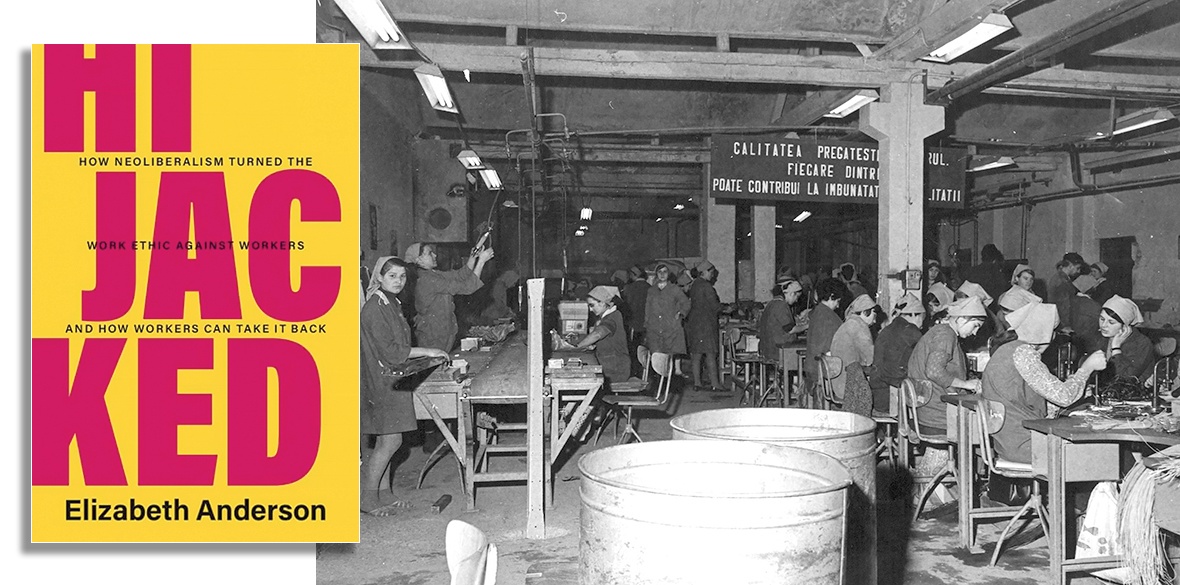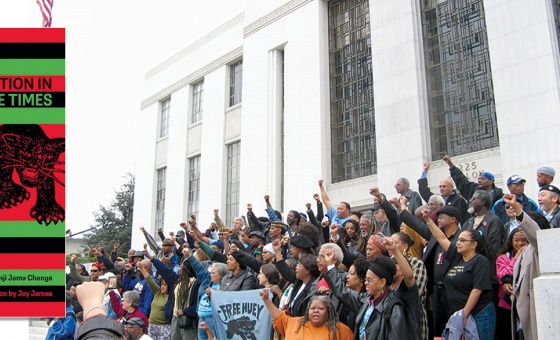This is the last article you can read this month
You can read more article this month
You can read more articles this month
Sorry your limit is up for this month
Reset on:
Please help support the Morning Star by subscribing here
Hijacked: How Neoliberalism Turned the Work Ethic Against Workers and How Workers Can Take It Back
Elizabeth Anderson, Cambridge University Press, £25
IT does not require a huge leap of the imagination to reinterpret debates in political economy as reducible to a moral struggle over a single theme: the purpose of work.
If we arm ourselves with Elizabeth Anderson’s superb history of the work ethic, we obtain a powerful lens with which to explore at a perfect time — during party conference season — how different visions of work form the beating heart of ideological struggle.
The author argues that the history of classical political economy and hence ideological conflict between left and right over distributive justice, the roles of the state and market and the conditions of workers can be told through rival interpretations of the work ethic. This idea is at the root of how we organise work, shape economic institutions and distribute wealth.
On the one hand, for example, a welter of government policies or plans confirm what Anderson inevitably terms a conservative work ethic in a bosses’ world where all that matters is profit and workers “owe their employers relentless toil and unquestioning obedience.”
This stance permeates the Tory outlook, from efforts to disenfranchise workers in essential services to Jeremy Hunt’s latest threat to withhold benefits from those he brands shirkers and Rishi Sunak’s homespun legend of his family’s entrepreneurial genius.
In this vision, capital holds all the power, the moral purpose of work is the accumulation of property and labour is merely an input on the balance sheet.
Anderson writes: “Conservatives favour government by and for property owners, at the level of the state and the firm. They assign different fundamental duties to employers and workers, rich and poor. They expect workers to submit to despotic employer authority. They tend to regard poverty as a sign of bad character and hence regard poor workers as morally inferior.”
On the other hand is what Anderson calls a progressive work ethic which retains its force on the socialist left and even in corners of a Labour Party that promises to eradicate the gig economy while embracing its sponsors.
In this vision, the motive of the worker is not only to survive but dignified production with a social purpose, with honest toil accompanying social and political empowerment.
Karl Marx, for example, understood that while exploitative labour under capitalism was a curse, work could free the human spirit — but only if workers controlled it to avoid alienation by capital.
Anderson argues that, while in the postwar era social democracy informed a more benign climate, neoliberalism has “hijacked” progressive ideas to restore a conservative notion stripped of the work ethic’s foundational moral dimensions.
She traces the origin of these to the Puritans, who regarded work as a godly calling founded on a set of virtues: industry, frugality, temperance, chastity and prudence. Importantly, predatory capital was an original target of their critique.
She shows that, nonetheless, this outlook contained the seeds of both conservative and progressive positions which, since the Reformation, have been locked in mortal combat, a conflict she explores through a timeline of thought from Puritan priest and theologian Richard Baxter to, more recently, John Maynard Keynes, Max Weber and David Graeber.
It was the nature of capitalism in the 20th century that may have hardened the attitudes of progressives, who began to criticise the work ethic and dream that work could be superseded.
Keynes saw work as instrumental, a means to an end that he mostly deplored. Weber argued bleakly that it trapped us in an “iron cage” of meaningless drudgery. Graeber coined perhaps the most apposite description of modern occupations under late capitalism, calling for the elimination of dehumanising, “bullshit” jobs.
By unpicking these foundations, Anderson shows how careful attention to the normative dimension of past attitudes to work can help us understand today’s contradictions.
While her book is mostly the history of an idea, her aim is to expose how this has been “hijacked” by neoliberalism — concealed behind the progressive language of liberalism but pursuing a conservative agenda that regards workers as of nothing beside profits.
She writes: “Call it what you will — neoliberalism, classical liberalism, libertarianism, free-market capitalism — the ideological rationale for these changes is at root a revival of the conservative work ethic.”
The results are everywhere to see: work is degraded, workers stripped of dignity, workplaces reinvented to control staff at the most intimate levels, markets and states rigged to empower businesses and subvert democracy and economies loaded to enrich a parasitic elite.
The author’s prescription is simple: we must look anew at the origins of the work ethic to reclaim its progressive aspects, and to organise society to promote the welfare of all by ensuring those who can freely participate in the social division of labour do so through work that advances human wellbeing.
Anderson’s examination of a keystone of political economy comes at a critical moment.
We are confronting a future in which human labour itself may be superseded by automation driven by an even more rapacious capitalism, raising questions about the very survival of work as we know it and what it is really for.









